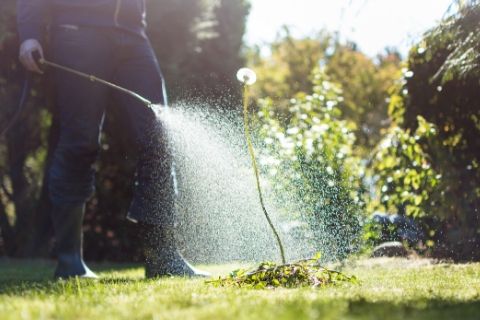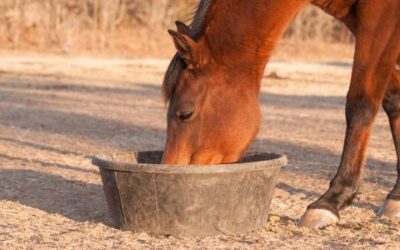
With sunshine and warm weather finally in our grasp, it’s time to get out into the garden. Early summer is the best time to roll up your sleeves and get to work on cultivating a gorgeous garden. Getting the ball rolling can sometimes be easier said than done, however. This is especially true for individuals who have never had the opportunity to grow their green thumb and are dipping their toes in the gardening waters for the first time. Luckily, with the right preparations and research, even a novice can cultivate a truly lovely lawn in no time. This beginner’s guide to lawn maintenance explores some of the most basic tips and tricks to help you tend to your lawn with all the finesse of a seasoned pro.
Get to know your soil
When working with plants of any kind, it’s always best to work from the ground up. This is equally as true for grass and lawn care as it is when growing fruits, flowers, or vegetables. Start by assessing the quality of your soil and familiarizing yourself with the type of grass and plants that will thrive best in your yard’s soil. You can start by assessing your soil’s pH level. This may seem like a tedious step, but it’s the best way to ensure your plants receive adequate nutrients. Certain plants will thrive better in soil with a slightly lower pH level, while others benefit from a more basic soil with a higher pH. If the initial level of your soil is not at the optimum level, don’t fret. There are some measures you can take to get your soil back to an acceptable pH level. For instance, adding lime can help raise the pH level of the soil while also creating a great source of calcium and magnesium for your plants.
Work with Mother Nature, not against her
Mother Nature can either be your most helpful adversary or your most untrustworthy enemy in the fight for a beautiful lawn. As such, it’s important that you try to stay on her good side as much as possible. Try to work with Mother Nature rather than against her and plan your plants around her schedule. Stay abreast of local weather reports and choose plants that are native to your climate. This will increase your plants’ rate of survival and will ensure that they can easily weather whatever Mother Nature throws their way. Staying up to date on local weather reports will also help you plan your planting, wedding, watering, and mowing schedule more precisely. Altering your schedule around your local climate will help ensure that your plants are never over or underwatered.
Plant with a purpose
In most areas, it’s best to plant grass seed toward the end of spring or in early summer. This gives the grass ample time to soak up the sun and grow throughout the season. Planting grass or filling in sparse areas generally requires far more seed than most people realize. Take the time to measure out your planting area and calculate the correct amount of seed needed. Be sure to choose the right type of grass seed for your area as well. Reading the seed label will provide you with further information regarding the best growing conditions for your specific type of grass seed.
Fertilize with finesse
Gardening is a patient person’s game. However, waiting for your grass to grow can be boring and time consuming. Speeding the process along with a bit of well-placed fertilizer can put you in the market for a gorgeous garden in no time. The right fertilizer for your lawn will depend greatly on the type of grass you hope to grow and the pH level of your soil. Different fertilizers provide nitrogen, phosphorus, and potassium in various quantities. Incorrectly calculating the necessary amounts of each fertilized can cause your grass to appear brown and brittle or may lead to excessive top growth. Be sure to carefully consider the needed nutrients for your lawn when choosing a fertilizer.
Maximize moisture
No beginner’s guide to lawn maintenance would be complete without discussing the importance of moisture and mulch. Due to its rather pungent aroma, mulch can often get a bad rap even though it’s an absolutely crucial element in lawn care. Ground cover products such as straw shredded mulch or wood chips help your plants lock in and absorb moisture at a greater rate. Placing ground cover is especially important during the summer when rain may be scarce and the sun can be sweltering. Shredded mulch and other types of ground cover also help ensure that your plants and lawn are neither over nor underwatered. In order to further reduce the likelihood of overwatering your plants, be sure that your lawn has a reliable drainage system. Check the area to make sure that stagnant water does not pool up anywhere and install additional drainage measures if necessary.
Mow like a master
Once your lawn has been planted and has been given a chance to grow, it’s time to bring out the buzz saw and hack it to bits! This sounds a lot more dramatic than it actually is, but mowing your lawn on a regular basis is an important part in ensuring pristine yard care. Failing to mow your lawn on a regular basis increases the rate at which weeds grow and leads to more rapid top growth. During the spring and summer, it’s recommended that you mow your lawn at least once a week, though this may vary depending on your climate and the amount of rainfall you’ve recently experienced. It’s recommended that you service your lawn mower at the beginning of the season to ensure it’s in proper working condition. Blades should be sharpened and adjusted to an appropriate height for the type of grass in your yard. Certain types of grass thrive better at certain heights. Cutting grass too short can impede its growth and ability to produce more seeds throughout the season. Consider whether you will bag grass clippings after mowing as well. Bagging clippings does lend a more clean-cut appearance to your yard, but clippings can also be mulched to provide additional nutrients to your lawn.





